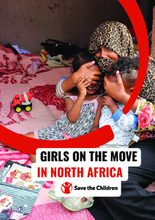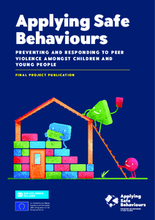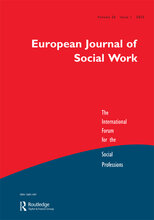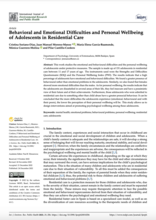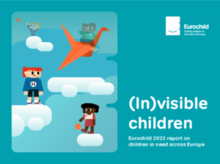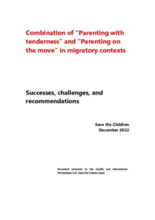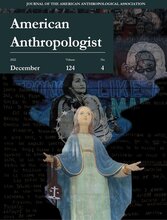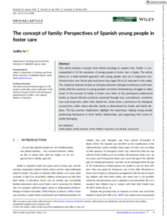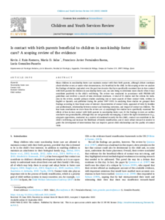Displaying 11 - 20 of 149
This study aims to address a gap in migration research, by developing a holistic and gender-specific understanding of the migratory patterns and experiences of girls in, through, and to North Africa. To do so, the research team employed a qualitative research approach, informed by child- and gender-sensitive practices, to collect data from girls and boys in Italy, Spain, Morocco, and Tunisia.
The project aims to make children and young people active agents in creating a safe environment for themselves and their peers, and to enable professionals who work with and care for children and young people to respond appropriately to peer violence amongst them.
The aim of this article is to analyse the factors that intervene in decision-making by childcare professionals regarding non-kin foster care in the north-east of Spain.
This paper studies the emotional and behavioural difficulties and the personal wellbeing of adolescents under protective measures in Spain.
This report highlights the recommendations and priorities that EU decision-makers and national governments can do to support the most vulnerable children and prevent widening inequalities.
The objective of this Save the Children Spain document is to gather the key findings of the combination of “Parenting with tenderness” and “Parenting on the move” in migratory contexts. It also seeks to improve the quality of its implementation in the context of Mexican migration, based on good practices and lessons learned.
This article explores the concept of solidaridad, considers its enduring currency in kinship discourse in Spain, and analyzes various case studies from the authors' respective research projects.
This article employs concepts from family sociology to explore how ‘family’ is conceptualised in 14 life narratives of young people in foster care in Spain.
In this scoping review the authors analyze the findings of studies conducted over the past two decades that have specifically examined face-to-face contact with birth parents for children in non-kinship foster care, with the goal of determining more clearly when it may contribute positively to the child's well-being. The review involved a search of nine electronic databases in Spain, the U.S., Portugal, and the UK.
The objective of this article is to identify those situations where the families of fostered unaccompanied migrant children are made visible in order to favor the incorporation of these families into the pathway planning. The fieldwork was carried out in Spain and involved working groups with specialized professionals.

